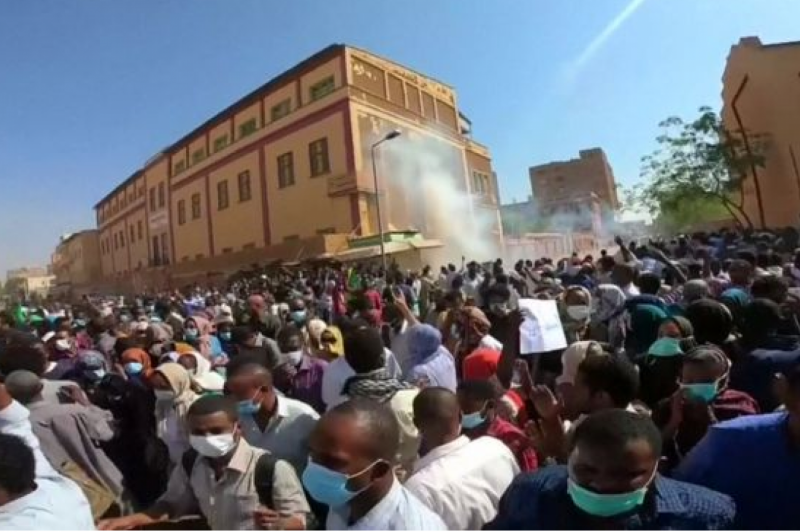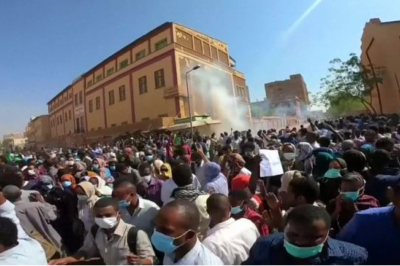The city of Atbara, the cradle of the Sudanese uprising that led to the ousting of President Omar al-Bashir in 2019, has become a meeting and transit point for those fleeing the ongoing conflict in Khartoum. Atbara has escaped the violent fighting that erupted in the capital between the army and the Rapid Support Forces over two weeks ago, but the power struggle between the factions has dealt another blow to the hopes of democracy supporters in Atbara.
Some of those who have arrived in Atbara, the city of the bread uprising, which was a railway hub during the colonial era and is located 350 kilometers northeast of Khartoum, are seeking to settle in the city. Others are passing through on their way to Port Sudan on the Red Sea coast or to Sudan's northern border with Egypt. Some have yet to make a decision.
Umayma Yasin, 35 years old, carrying her child, said, "We came to Atbara seeking safety after the war in Khartoum, leaving our homes and lives there; we don't know how we will continue our lives."
Atbara has a history rich in political opposition movements alongside a strong labor movement linked to railway lines. It witnessed massive anti-Bashir protests that led to his ousting in April 2019. The city does not usually receive many visitors, but the fighting in other areas has benefited its commercial activities. The owner of one of the few hotels in the city stated, "The hotel has not seen a demand like this since the start of the war in Khartoum, which has caused prices to rise to 30,000 pounds ($50) per night."
Mohamed Ismail, a grocery store owner in the city, mentioned that increased demand has spurred sales, but the halt of normal life in the capital has caused inflation and raised concerns about supplies. Home goods trader Jaber Abdullah, 29, said, "We started raising prices because the market has increased its prices; all our goods come from the Khartoum market, and due to the war, we cannot buy from Omdurman (near the capital)."
Fuel supplies have dwindled due to the concentration of distribution in Khartoum, resulting in long queues of vehicles seeking fuel. Eman Al-Rifai, a lawyer and resident of Atbara, pointed out the rising prices and flour shortages, stating, "The damage from the war is not confined to Khartoum; all of Sudan's economy has faltered." She has participated as a member of a local "resistance committee" in protests against the army since the 2021 coup and previously in the anti-Bashir uprising.
She said, "The military's ambitions were greater than the dreams of the revolution's youth; we hope to stop the war and minimize the current losses." Another committee member named Yusuf Hassan, 31, expressed, "I had big dreams for real change, achieving the overthrow of the regime, reaching democracy, civil state, decent living, and job opportunities for the youth." Hassan, who noted that he was among the participants in the first protest that took place in Atbara on December 19, 2018, added, "The current reality is disappointing and does not bode well because war is the worst thing in the world."




